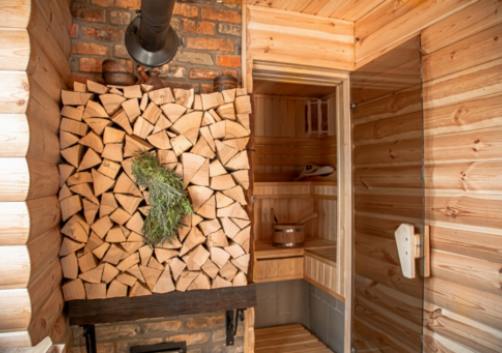Understanding Different Wood Types for Saunas
22 January 2026 by Diane T.The type of wood you choose for your sauna can greatly impact your overall sauna experience. From the aroma therapy benefits to the maintenance and care required, selecting the right wood is essential. In this article, we will explore different wood types commonly used in saunas, and how to enhance your sauna experience with specialty wood options.

Choosing the Right Type of Wood for Your Sauna: A Guide
When it comes to choosing the right type of wood for your sauna, it is important to consider the different characteristics and benefits that each type of wood offers. From the scent and aromatherapy benefits to the durability and maintenance requirements, there are several factors to keep in mind when selecting the perfect wood for your sauna. By understanding the qualities of each wood type, you can ensure a relaxing and enjoyable sauna experience.Exploring the Aromatherapy Benefits of Different Wood Types in Saunas
Different wood types release unique fragrances when heated, adding an extra element of relaxation and rejuvenation to your sauna experience. Cedar is a popular choice for sauna construction due to its natural oils that release a sweet and calming aroma when heated. This wood type is known for its anti-fungal and antibacterial properties, making it not only pleasant smelling but also beneficial for your health. Another commonly used wood for saunas is hemlock, which emits a fresh and woody scent when heated. Hemlock is known for its ability to withstand high temperatures and humidity, making it a durable and long-lasting choice for sauna construction. For those looking for a more exotic aroma, eucalyptus wood can add a refreshing and invigorating scent to your sauna experience. Eucalyptus is also known for its respiratory benefits, making it a great choice for those looking to clear their airways while relaxing in the sauna. Pine is another popular choice for sauna construction, releasing a natural and earthy scent when heated. This wood type is not only aesthetically pleasing but also has antimicrobial properties, helping to keep your sauna clean and hygienic. Overall, the type of wood you choose for your sauna can have a significant impact on the aromatherapy benefits you experience during your sauna sessions. Whether you prefer a calming cedar scent, a fresh hemlock aroma, an invigorating eucalyptus fragrance, or a natural pine scent, selecting the right wood type can enhance your sauna experience and leave you feeling relaxed and rejuvenated.Maintaining and Caring for Different Wood Types in Your Wood-Burning Sauna
Here are some tips to help you keep your sauna in top condition:Regularly clean the wood surfaces with a soft cloth or brush to remove any dust, dirt, or debris. This will help prevent the buildup of grime and keep the wood looking its best.
Avoid using harsh chemicals or abrasive cleaners on the wood surfaces, as these can damage the finish and affect the natural beauty of the wood. Instead, opt for gentle cleaning solutions that are specifically designed for wood surfaces.
Inspect the wood for any signs of damage or wear, such as cracks, splits, or discoloration. Address any issues promptly to prevent further damage and maintain the integrity of the wood.
When using your wood-burning sauna, monitor the temperature and humidity levels to ensure that they remain within the recommended range for the specific type of wood used. Extreme fluctuations in temperature and humidity can cause the wood to warp or crack over time.
Apply a protective sealant or finish to the wood surfaces as needed to help protect against moisture, UV rays, and other environmental factors. Be sure to follow the manufacturer's instructions for the specific type of sealant or finish used. By following these tips and guidelines for maintaining and caring for the different wood types in your wood-burning sauna, you can prolong the lifespan of your sauna and enjoy its benefits for years to come.